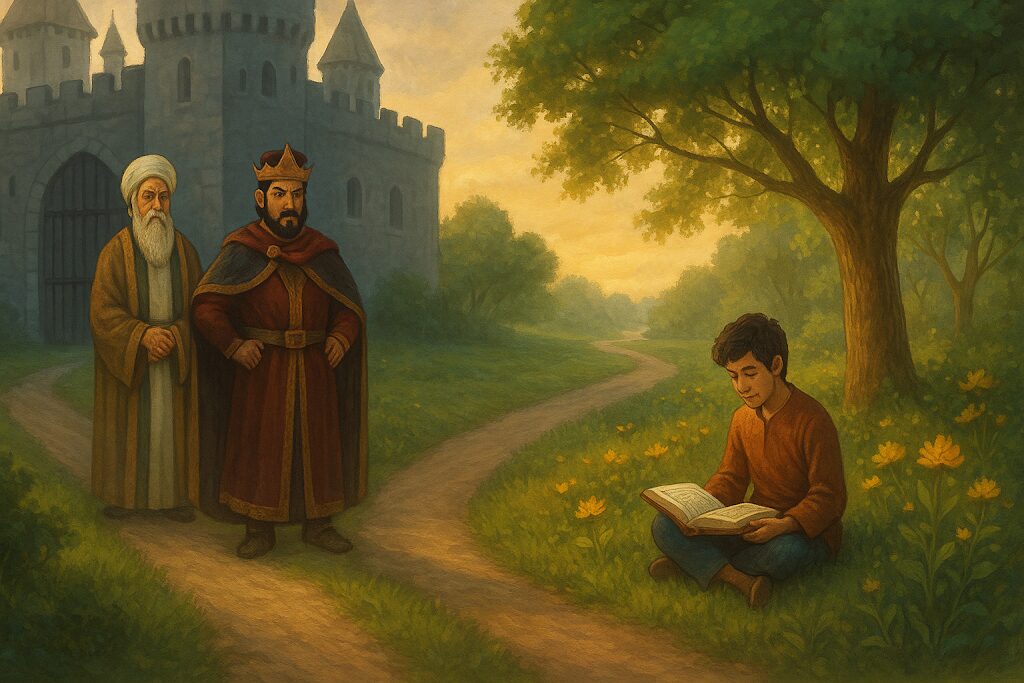Wait… didn’t God tell us to read?
There’s a phrase we’ve all heard in one form or another:
“No, no — don’t read the Qur’an yourself. It’s too complex. Too nuanced. You need a sheikh to interpret it for you.”
And listen — let’s get one thing straight:
We have deep respect for our scholars.
Their study, their training, their insight — it matters.
They are stewards of sacred knowledge and should absolutely be listened to, learned from, and held in esteem.
But here’s the problem:
Somewhere along the way, we turned “respect” into “dependence.”
And worse — into self-disqualification.
The First Command Was “Read.”
Let’s not forget how this whole revelation began.
“Iqra’.”
“Read in the Name of your Lord who created.”
[Surah Al-‘Alaq 96:1]
The first divine command to humanity in the final revelation wasn’t “Obey.”
It wasn’t “Ask your local sheikh.”
It was Read.
That matters.
That tells us something about the relationship God wants us to have with His words.
Not passive. Not distant.
Active. Direct. Personal.
Centralization Is a Legacy — Not a Divine Instruction
The idea that you need a scholarly middleman just to approach the Qur’an?
That’s not from the Qur’an itself.
That’s from centuries of centralized religious control.
Historically backed by monarchies, elite institutions, and systems that benefit from keeping the masses uninformed.
When knowledge is centralized, power is too.
But God didn’t restrict His message to a classroom or a pulpit.
He sent it to a man in a cave.
Who didn’t know how to read.
And still — he was told to read.
You’re Not “Unqualified.” You’re Untrained — and That’s Fixable.
Let’s be honest.
Understanding the Qur’an does take effort.
It takes curiosity, humility, reflection.
Sometimes, it takes asking scholars for context, depth, and clarity.
But you’re not banned from trying.
You’re not unworthy of reading.
You’re not too “simple” to understand divine wisdom.
You were created to seek.
And the Qur’an was sent to be read.
This idea that only the elite can approach it?
That’s not religion. That’s gatekeeping.
Teach Kids to Think, Not Just Recite
And this is why it shows up in our work — in the way we write Islamic storybooks for children.
We’re not just trying to get kids to memorize Arabic sounds without knowing what they mean.
We’re not trying to make faith something you “hand off” to a specialist.
We’re trying to give kids tools — emotional, intellectual, spiritual — to read, reflect, and ask why.
If the Qur’an is a letter from God to humanity,
then our kids deserve to learn how to read that letter.
Not just repeat it.
Not just hear someone else’s opinion about it.
But really read it.
Scholars Illuminate. They Shouldn’t Replace.
We still turn to scholars.
We still learn from them.
But we don’t hand over our God-given right — and responsibility — to seek truth.
This isn’t rebellion.
It’s what revelation invited us to do.
So the next time someone says:
“Don’t read the Qur’an — you’ll misunderstand it.”
Just ask:
“But didn’t God tell me to?”
Enjoyed this?
Subscribe to our newsletter and get a free Islamic storybook — rooted in the Qur’an, crafted for curious young minds.
👉 Join now — start with a story that actually means something.
